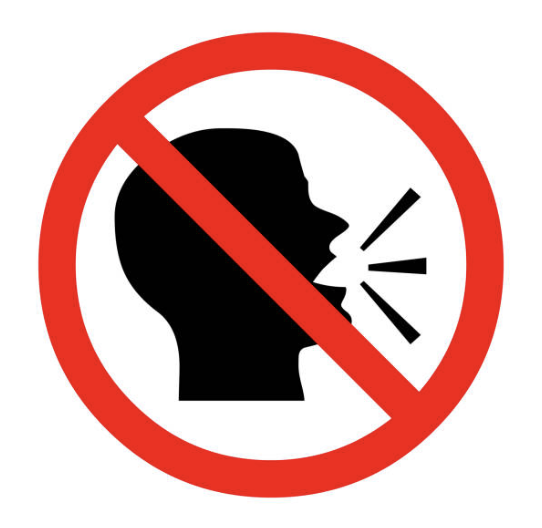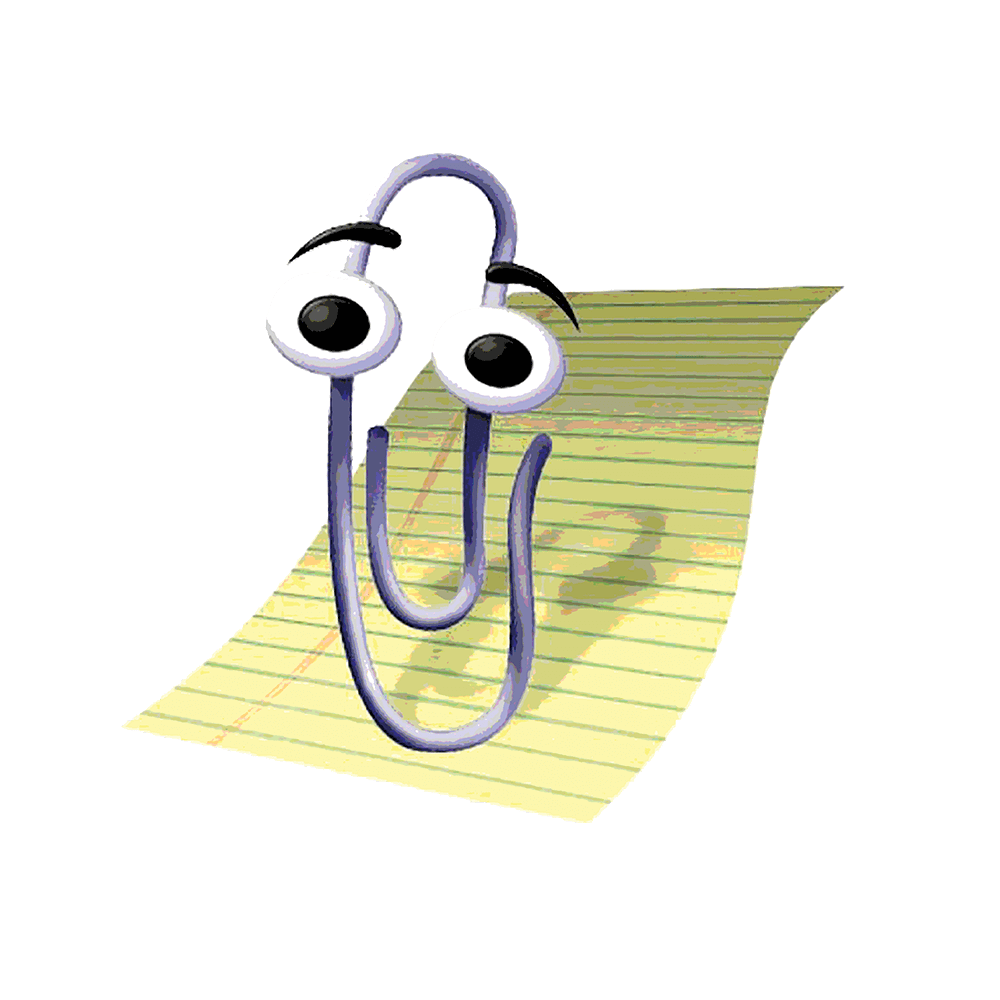*in the US
I have been to libraries in the US and in Europe and in Europe you are supposed to return the book exactly where you got it from if you dont decide to check it out. In the US though I was yelled at for doing that.
Hmmm, how do I work in shitting on the U.S. in this post about libraries? I know! I’ll conflate all 44 European countries into one amorphous blob. Lol, owned.
I’d ask you your country of origin but you’d never tell me if it’s Russia or China.
Y’all must realize “Europe” isn’t one single sort of entity that defines all rules…
In Romania you are required to hand it to a worker to have it checked in and catalogued, you can’t just put it back because they need to know if you went over your holding period or not. You’re not allowed to keep it forever
I think they’re talking about books you’ve read in the library and decided not to check out, not books you’ve already checked out, taken home and are now brining back.
Ohhh okay.
Yea we do put those right back, they don’t keep track of reading sessions per book or anything like that
This. In Austria most libraries have a self-scan machine where you have to return your books and the librarians will sort the books back in. Part of the reason for that is that they need to check the condition the books were returned in.
I don’t know where you’ve been but most libraries I’ve seen in Germany have little carts where you put the book you don’t want to check out. Our university library even had signs asking to please put books on the carts and not reshelve them yourself.
I’ve never read books, but AI is corrupting the internet and can even rewrite online books, so I’ll probably start going to libraries if I want to see the human soul.
I guess you have to rely on books written pre-2021, as nothing stops authors (or publishers directly) to let AI generate text for their Books, and even train them to write based on sell counts…
Yes, it’s difficult, so we should have created libraries ourselves and stored books there to avoid this.
I don’t understand - you’ve never read books?
Might be cooked
I’m afraid AI written books are being published and put into library shelves too.
Just stick with books from 2010 and earlier and you’ll be fine.
Wait, are people checking out books, bringing them home and then… Just putting them on the shelves again???
Not quite. Imagine you’re writing a research paper at the library. You take some books off the shelf to study from while you’re there. Then, before you leave, don’t reshelve the books. It’s because the library tracks metrics of which books are being used and if you put it back yourself it doesn’t get counted.
For an academic Library, absolutely. But I worked at the local library here, and we didn’t track anything unless you checked out the book.
But would you trust everyone who takes a book off the shelf to put it back exactly where they found it?
We had all books stickered on the spine though, with the shelve/genre (for novels) or number (for educational books) and the first three letters of the author’s name. So it wasn’t overly hard and mostly worked out. People can mostly manage to match the picture and then alphabetise “DUM”, so the Three Musketeers would generally find it’s way back alright.
We still had walks to check though, and that’s probably where my lifeling obsession with alphabetising and straightening shelves comes from. I do it even when i’m in a random bookstore, just alinging the spines with the edge of the shelve after putting a book back.
Libraries are THE BEST and the last citadel of culture left, I consider librarians Holy Crusaders of Knowledge, and they are the last bastion protecting humanity from intellectual darkness, and the forces that assail the dispersion of truth.
DEUS VULT, librarians! STRENGTH AND HONOR!
In my nearby library, you can even take music and movies out. Old as shit music and movies on CDs and DVDs, but music and movies nevertheless.
In my library they also had games, back then that was a literal game changer for me when I discovered they had Sims 2 expansion packs.
The good old rent CD, rip it, give it back piracy 😁 were fun times
more libraries do that than libraries that don’t from what I’ve seen.
Y’know I’ve known this but I just now thought that I should do so and rip them shits digitally.
I need more library memes
Libraries should host the peoples websites/videos/games/art online for free. To be against this is to be against the original purpose of Libraries.
The Internet Archive isn’t a website host, but it certainly does all those other things.
I love this idea. Libraries should provide free hosting for people in the community.
Im all about democratizing the internet, and im all about self hosting. Libraries could be just what we need for that.
Brilliant idea my friend.
Well said! Libraries have always been about sharing knowledge and resources. Hosting websites, videos, games, and art online for free is just another way to continue that mission.
That’s a brilliant idea, I might actually propose it to my local library as a prospective volunteer for the service.
Nah, libraries are theft. When you borrow a book from a library and you read it, then you have stolen a book from the publisher. Then you give it back and the next person comes along and reads the same book, stealing even more from the publisher.

Best option is to just buy the book and not read it! That’s the best option for the publishers.
Nah someone could potentially pick up the book and
readsteal it. The proper way to respectfully buy a book is to burn the book itself and stick the empty sleeve on display to give the publisher the ad they deserve.as well as uni classes
Yup. Tbh, memory in general is theft. You should not be able to have the memory of the book you read unless you keep paying for it. Really should be introducing subscription models for memories of experiences, like reading. Otherwise it’s lobotomy for you.
I can remember it for you wholesale
Brings to mind this bit from Tom Scott
People with dementia will save so much money.
Please…please don’t give them ideas.
Give them any idea and then stop the shitty ones.
If you read the book really fast, you can read it multiple times, costing the publisher even more. If you read it enough times, you could even force the publisher into bankruptcy.
Stallman would be proud lmao.
When you’re a die-hard capitalist:
Your meme has inspired me to renew my library card.
We should all aspire to be the Oceans 11 heist of having a library card.
Waow based
Somebody just got promoted at the ACS. ;p
You wouldn’t download a
carbookFirst time I’ve ever seen anyone speaking out for publishers and against lending and borrowing. You’re even ignoring how authors only get less than 10% of sales while publishers get 90% or so.
I believe they are speaking in jest, hence the comical premise and imagery which is a reversal of a common meme used to criticize capitalism.
Maybe. There’s no real way to know anymore with all the batshit crazy opinions people genuinely hold.
Sure, but on a platform with this many leftists, it wouldn’t be upvoted if the message communicated wasn’t this. They also almost certainly would not expect it to be a successful comment if this wasn’t their intention as well.
I definitely get this, but sometimes I decide it must be meant as a joke because it’s easier to respect them as a person if it is
Ok. Sometimes I don’t bother trying to tell apart a joke from a real concern. I mean, who knows what a struggling publisher would say. No worries.
It’s Important
The librarian at my grad school had a book cart in her house and would not let her husband put a book anywhere but on that cart once he was finished with it. Power move.
Why’s that? Is it just in case you put it in the wrong spot?
Primarily, yes. But also most libraries run a book through the check-in system when they pick it up. This marks in the system when and where the last time a book was touched was, which can be useful if it were to go missing. But mostly it’s so it doesn’t go in the wrong spot.
Do they track the number of times a specific title was checked out?
I’m sure that info is pretty valuable to track reading trends.
Yup! They also track the number of times it was renewed.
Definitely! Totals are generally sent to the city/state and come up in budgeting discussions and the numbers are used to determine what books to buy.
deleted by creator
Oh this is for books that are taken out, yeah that makes sense. I assumed this was just for a book you took off the shelf to read while in the building.
Unless the library is tracking book reader stats or you actually check out the book, maybe remember how the classification system works like they were supposed to teach you in school?
Half the time I’m literally standing in front of the shelf perusing the book, it would be dumb to throw it in the book return unless I don’t know or can’t find the exact position where it came from.
You’re depriving some poor librarian the best part of their day.
If you know how to properly reshelve the books on your own, you know who you are. Just do it. No one will care nor will anyone bother you if you aren’t causing a problem. For everyone else, there is the dump cart.
I see these messages more as being aimed at those who don’t even know there is a system, those who do but don’t care to learn it, or some other combo of known or unknown unknowns. When books are returned improperly, it creates a moment of unnecessary work at best. At worst, it causes things to become harder for patrons and staff to find, improperly recorded, or “lost” in the system, and those types of mistakes have a tendency to add up/compound with a large enough collection.
It takes way longer to unfuck that kind of mess than to have it be put back correctly in the first place, so let the pros handle it if you’re not 100% sure – there’s absolutely no shame in that.
I think you should never reshelf books yourself.
For one you can’t be absolutely sure which archiving system is used in the specific library without either asking or working there, which kind of moots the point.
For another this can put back wrongly archived books back in the system. While it seems reasonable that a book is archieved correctly this does not have to be the case and therefore simply putting it back could be wrong
For those that want to learn, its the Dewey decimal system.
Library of Congress Classification (LCC) is better simply because all bibles are listed under the letters BS
https://en.wikipedia.org/wiki/Library_of_Congress_Classification
Til. Thanks
Idk. I think it’s just easier to rely on a specific someone whose job it is to put shit in the proper place than to hope every random person who takes a book off the shelf can put it back in the proper place. Like, I get what you’re saying. It isn’t a big ask to have people return a book after looking at it. But it’s so easy for them to put it in the wrong spot. And once it’s on the shelf, it’s much harder to notice that it’s out of place. It seems counter intuitive, but it’s more efficient to simply leave the book out after looking at it
How can it be difficult to put something back where you found it anyway?
If you’re doing something like gathering research materials, a lot of times people will grab a bunch of stuff of the shelves at once then take it all back to a table somewhere to peruse. In that scenario it’s definitely likely you’ll forget where something went, or mix things up.
i work at a library. please put the books in the spot labeled book return. it may not seem like it but because there are so few people working there just a few people in the library can keep us so busy we will miss the books you put down. also, check if your library has an ebook/audiobook thing like Libby. the wait times can be long but it’s still pretty cool if you’re into those.
I started using Libby during pandemic and for a while I was reading more than I have in years! But the wait times got me. As I read more of the easy choices, my typical wait time got longer and longer until I lost interest again
I suspect that depends.
At least at finnish HelMet libraries, you can just walk in and take any book out of any shelf, and sit down to read it. Once you’re done, you put it back in the exact same spot.
If you don’t remember where that was, then you can hand it to a librarian to re-shelve. They will check the inventory to see where it should go.
You can actually also do that yourself, since the same system is available for finding any given book currently in the library, but it works just as well for putting something back.
All of the above is allowed without signing up for a library card.
If you want to bring a book home, that’s when you go to the checkout, scan your library card, and the barcode on the book. This removes it from current inventory and logs you as the current borrower.
When you bring it back, you scan the book again and leave it on the shelf by the returns scanner. Because the book was removed from the inventory, it wont have a place on a shelf yet. Also, because the inventory of any one library here is everchanging, things may have moved around.
This system also allows you return books to a different library from where you borrowed them. Since the HelMet libraries in the capital city region all interoperate, they share collections, and the location and lending of every individual item is tracked across them all. Across four cities and 66 libraries, and even a couple library buses that visit schools and more remote spots on a schedule.
You can even browse the inventory online. See where copies of what are available, what’s available but currently lent out, request something be moved to a library close to you so you can read it, or reserve a spot in line to borrow something popular.
Kinda just gushing about our libraries. If they don’t have something, HelMet does intralibrary lending. They will get a certain book or item for you from another library network entirely (even from abroad), lend it out to you, and once you’re done, return it back to the providing network.
They do their darndest to make physical media as accessible as the internet, and it’s freaking free (for the most part, some things have a fee).
That’s how it should work everywhere.
My Helmet library after scanning the book you want to return tells you to put it on the shelf behind you or it zoops into the machine and goes in some sort of cart or something
That’s all exactly the same here in the US, except I’ve yet to come across a library that let patrons operate the scanner.
Damn. Over here we have self-service hours.
Library card holders that sign up for it can get into a library building using their library card, outside normal opening hours, when the staff isn’t even there.
That’s neat. I guess American society is too low trust for that, sadly.
Our little local library uses RFID chips in the books. It is all self checkout, you just place it on the scanner and done.
No, we definitely have them, even as far back as when I was a teen. But like most things, it varies…
I haven’t encountered it, so I am absolutely sure it doesn’t exist anywhere in America.
In a comment, OP provides the other reason that libraries may not want you to read a book and return it (other than putting it in the wrong place, which occurs). Libraries may be collecting data on usage.
I assumed the OP is about returning books you’ve checked out. If you just come in and put them back on the shelf, the system will still think they are checked out since they never got checked in.
This is essentially the same as in the US. But one question
When you bring it back, you scan the book again and leave it on the shelf by the returns scanner. Because the book was removed from the inventory, it wont have a place on a shelf yet.
Do you not have a classification system that determines where a book should reside? US libraries (and others, I presume) use the Dewey Decimal System, which groups books into categories and such, and then finally alphabetically by author. So every book would have a general place to go, and then the specific place would be determined by the author’s last name.
Sure.
Items are grouped by type (games, video, music, tools, devices, fact, fiction, for adults, for kids, comics, audiobooks) etc. Each library may subdivide things in slightly different ways, due to the fact that they vary massively in size. I think some do use DDC for some subset of their inventory. But HelMet has a lot of media and items that do no fit into the DDC system.
You can certainly find something based on how things are sorted, and if you know its there.
But since the collection is region-wide, you don’t necessarily know that. Step one to finding a copy of something is to look up what libraries currently have any. When you look that up, the shelf location is right there as well.
Many locations simply number their shelves, and then further subdivide them by a point value, and then sort alphabetically.
A Harry Potter book for example, could be on shelf 86, section 11063, by “HAR”.
Each entire shelf is usually in alphabetical order overall, too, but the numbers make it really easy to zero in on exactly where a given item can be found.
But since any book might move to any other library, at any time (due to requests or due to borrowers returning books to a different library to where they picked them up), there is the simple problem that a location can run out of space in a given section. Hence they need to be able to put items on any shelf, and still have it trackable by the system.
Otherwise they can end up having to shift hundreds of books over to make space for just a couple more items to go in the right spot in the order.
Interesting! When you return a book to a different in-network library it stays there? In the US/at my library, if a book belongs to library A and a patron returns it at library B, it is sent back to A.
Depends.
Items get sent around all the time. In-network, copies are interchangeable, and the system balances them out among the libraries. AFAIK there’s no particular need for a copy to go back to the same shelf, so it doesn’t happen.
If no-one is looking for a certain item, it wont move again unless someone asks, or if the library needs space for something else.
It’s kinda nice. Every time I visit a library it can have an entirely new selection. With recent requests to that location which have been returned again, or just returns, appearing on the shelves.
Ah, I can see how shelving limits could cause problems. Most libraries I’ve gone to only fill each shelf about 3/4 full to account for that. Thanks for the insights!
This is wholesome.




















